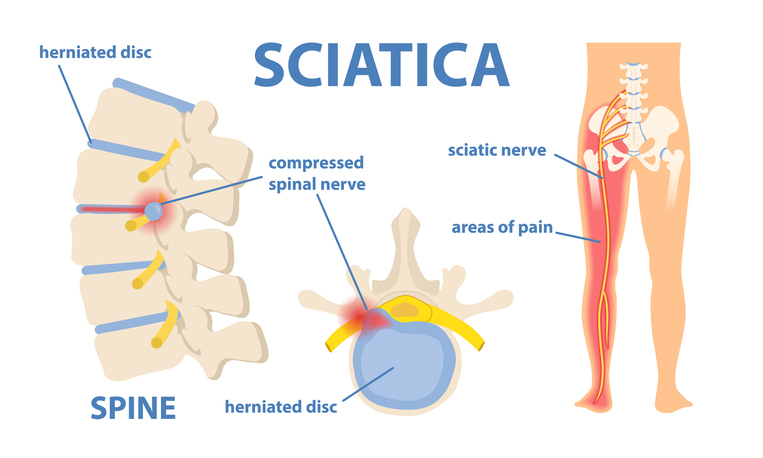Pain
Progression and Potential Complications of Lumbar Radiculopathy

What is lumbar radiculopathy?
Radiculopathy is the medical term for symptoms caused by irritation or compression of one or more spinal nerve roots. Spinal nerve roots connect the spinal cord with the nerves that supply sensation and motor function to the rest of the body.
Progression of lumbar radiculopathy
Although lumbar radiculopathy typically improves with conventional medical treatments, alternative and complementary treatments, or at-home treatment options, it can progress into chronic pain. A health care professional should be consulted if symptoms worsen or do not improve after several days of treatment. Further testing can help determine a different treatment approach.
Possible complications of lumbar radiculopathy
Untreated or progression of lumbar radiculopathy can result in possible complications, which include, but are not limited to, the following:
- Prolonged inflammation can cause fluid to press on the nerves, which can result in nerve damage.
- Decreased quality of life can occur.
- In severe cases, loss of urine and bowel control may transpire. Cauda equina syndrome involves the nerve roots, especially the ones that control bowel and bladder function, becoming compressed and ceasing sensation and movement. This typically requires emergency surgery.
- Chronic pain can evolve due to unimproved lumbar radiculopathy.
- If lumbar radiculopathy progresses, muscle atrophy can occur due to nerve damage.
- Deconditioning, such as weight gain, muscle loss, and depression, can develop.
- Problems walking and moving may result from lumbar radiculopathy.


















